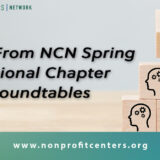Keynote Speaker:
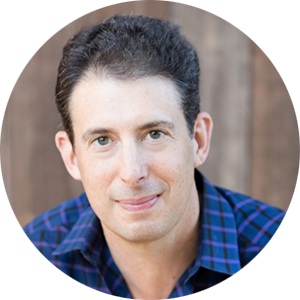
Eric Klinenberg
Author and Helen Gould Shepard Professor of Social Science and
Director of the Institute for Public Knowledge at New York University
Eric Klinenberg, author of Palaces for the People: How Social Infrastructure Can Help Fight Inequality, Polarization, and the Decline of Civic Life (Crown, 2018) and Helen Gould Shepard Professor of Social Science and Director of the Institute for Public Knowledge at New York University, will speak about how we rebuild: social infrastructure, nonprofit organizations, and the state in the post-pandemic recovery.
Eric Klinenberg
Author, Helen Gould Shepard Professor of Social Science and Director of the Institute for Public Knowledge at New York University
Eric Klinenberg
Author, Helen Gould Shepard Professor of Social Science and Director of the Institute for Public Knowledge at New York University
Innovation Leaders Include:
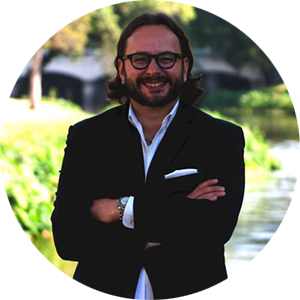
Giovanni Palavicini
Principal – Flexible Office Solutions – Avision Young
Dallas, TX
JUST ADDED!
Navigating the Current Real Estate Landscape
Session Description:
Giovanni will update attendees on how landlords are responding to the pandemic, what the expectations are going forward and how operators are repositioning themselves to anticipate future needs of customers.
Giovanni Palavicini
Principal – Flexible Office Solutions – Avision Young
Giovanni Palavicini is an experienced Real Estate Strategist focused on the future of work specifically as it relates to the Flexible Workspace Industry. He helps operators, landlords and investors to make wise business decisions using a combination of science and art.
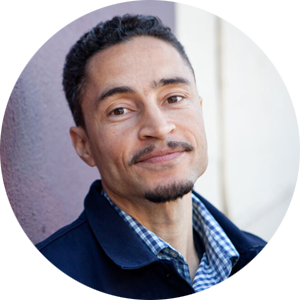
Zach Norris
Ella Baker Center for Human Rights
Oakland, CA
Restore Oakland: A New Vision of Community Safety and Community Development
How an innovative nonprofit center and community hub took a leading role in promoting racial justice as one component of overall community health.
Session Description:
Zach Norris will share how and why Restore Oakland, an 18,000 square foot building that houses a restaurant, worker training programs, dedicated space for restorative justice, and below market rental space for local nonprofits, will survive the global pandemic. The organizations in the building have already been providing direct relief to communities most impacted by covid-19 and the US’s lack of a social safety net. Because of their diversity of support and the commitment of its partners, they are positioned to emerge from the pandemic as a center for community life and healing.
The vision for Restore Oakland was based on community driven research, summarized in a report, “Who Pays? The True Cost of Incarceration on Families,” the building is the visual aid of how to move to a world beyond policing and prisons. If we are to move to a world where all public health issues are dealt with using a public health approach, we need an entirely new vision of safety where black, brown and poor people public health issues are not met with policing, punishment and prisons. Based on the ideas of formerly incarcerated people, their families and the visions of survivors of crime, Restore Oakland is to the movement for community safety what the first solar panels were to the movement for climate justice.
Zach Norris
Executive Director Ella Baker Center for Human Rights
Oakland, CA
Zach Norris is the Executive Director of the Ella Baker Center for Human Rights, author of We Keep Us Safe: Building Secure, Just, and Inclusive Communities, and co-founder of Restore Oakland, a community advocacy and training center that will empower Bay Area community members to transform local economic and justice systems and make a safe and secure future possible for themselves and for their families. Zach is also a co-founder of Justice for Families.
Zach helped build California’s first statewide network for families of incarcerated youth which led the effort to close five youth prisons in the state, passed legislation to enable families to stay in contact with their loved ones, and defeated Prop 6—a destructive and ineffective criminal justice ballot measure.
A Harvard graduate and NYU-educated attorney, Zach is also a graduate of the Labor Community Strategy Center’s National School for Strategic Organizing in Los Angeles, a 2011 Soros Justice Fellow, a former board member at Witness for Peace, Just Cause Oakland and Justice for Families, a recipient of the American Constitution Society’s David Carliner Public Interest Award in 2015, and a member of the 2016 class of Levi Strauss Foundation’s Pioneers of Justice.
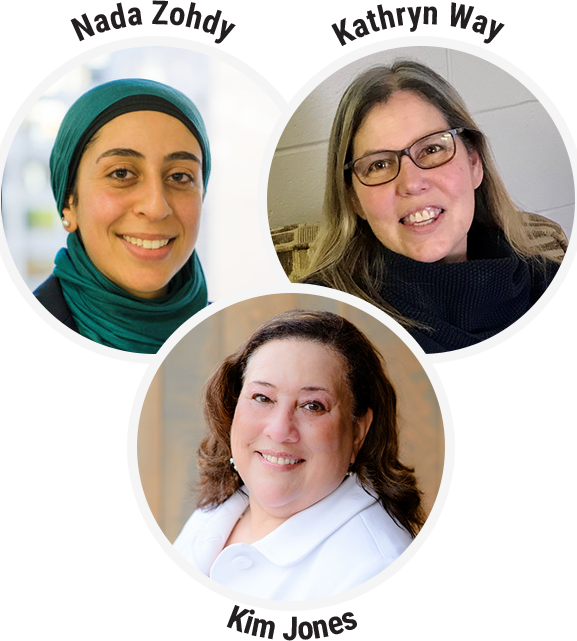
Kim Jones
Nonprofit Village
Rockport, MD
Nada Zohdy
Open Gov Hub
Washington DC
Kathryn Way
Alberta Parenting For the Future
Story Plain, AB
Adaptations to Meet the Moment: New and Revised Community Programming during COVID19
Three speakers will share how their centers have adapted during COVID-19 to support their members and the community at large in presentations of 15 minutes each. A 15-min collective Q&A will follow the presentations.
Session Descriptions:
Kim Jones, Nonprofit Village:
Shared spaces are designed to allow members to focus on their mission while the Center facilitates back office administration and services that decrease their rentable footprint and work more affordably. One of the most critical features of a shared space is the ability for members to collaborate and engage in peer learning. How do shared spaces maintain a sense of community in the new work-from-home environment? And how can they continue to learn new best practices from each other, when there is no opportunity to “bump into” each other in the space? Is it necessary to facilitate how nonprofits learn to pivot to new practices and learn about new opportunities? The tactics used by Nonprofit Village maintained and expanded these opportunities for nonprofits in our community.
Kathryn Way, Alberta Parenting for the Future Association:
Alberta Parenting for the Future Association knows has kept their rural community hub open even when money is scarce but the challenges facing families have increased. They have built a Social Lab within their Hub for multiple systems to gather and work on problems and are bringing those same systems together to access funding that provides integrated holistic support for the people in our community. Kathryn will share hands on tools used within the lab, specifically prototyping over piloting, bring diverse people together, and empathy mapping, to create a deeper understanding of the problems and how to address them.
Nada Zohdy, Open Gov Hub:
The organizations most resilient through crisis are those most willing to creatively adapt, applying their existing resources in new ways. This spring, the team at Open Gov Hub (OGH) in Washington, D.C. spent one month listening to every one of their 50 member organizations through one-on-one interviews in an unprecedented Member Outreach Process. These interviews – which were rooted in two simple questions: What Do You Need Right Now? And What Can You Offer to Others? – helped generate over 50 new connections/matches between needs and offers in the network. Even more importantly, it provided the OGH team with a clear roadmap of its top member needs in these unusual times. This presentation will explain one key example of how OGH pivoted its pre-existing partnership with Columbia University. The result was a brand new online course that trained staff from a dozen different member organizations on how to develop their own effective virtual workshops and online courses, to educate and engage their stakeholders in new ways during the pandemic.
Kim Jones
Executive Director of Nonprofit Village
Rockport, MD
Kim Jones is Executive Director of Nonprofit Village and developed a collaborative environment for nonprofit members by building critical capacity building programs, expanding services, and diversifying the organizations in the space. She has over 25 years of experience in national and international nonprofit management with an emphasis on cross-cultural outreach, capacity building and strategic alliances.
Kim established programs that served as a national model, founded an international nonprofit, and established an international fellowship department at the British Embassy. Her passion is facilitating partnerships and focuses on nonprofit joint ventures. She is intentional in sustaining charitable organizations through innovative strategies.
Kim holds a B.A. in Political Science from Spelman College, earned the CAE and Certified Proposal Writer certifications. She serves on several nonprofit Boards and is a long-time volunteer mentor. was named a Top 100 Women of Maryland honoree in 2019 and received the Distinguished Graduate Award from Leadership Montgomery.
Nada Zohdy
Director of Open Gov Hub
Washington DC
Nada Zohdy is the Director of Open Gov Hub, a network hub of 50 member organizations. She was previously a consultant for the World Bank and the Democracy Fund, a consultant on open government for the OECD, and performed research on nonprofit collaborations, published by the Stanford Social Innovation Review.
Nada was Founding Program Coordinator for Civil Society Partnerships at The Project on Middle East Democracy (POMED), an unprecedented program that supported a dozen local watchdogs and think tanks in several transitioning Arab countries in the wake of the Arab Spring.
Nada has supported nonprofits in different capacities, including Chair of the Board for Rhize, a nonprofit that supports social movements around the world. She has a Bachelor’s degree in International Relations and Arabic from Michigan State University and a Master of Public Policy from the Harvard Kennedy School of Government, where she was a Pforzheimer Nonprofit Fellow. In 2009 she received the national Truman Scholarship for leadership and public service.
Kathryn Way
Program Facilitator, Alberta Parenting For the Future
Story Plain, AB
Kathryn Way has been with Alberta Parenting for the Future Association (APFA) for 15 years, having served as the Social Media/Community Engagement Coordinator and Parenting Program Facilitator, prior to her role as Community Projects Coordinator, where she seeks grant and partner support for APFA’s large social purpose project, The Family Connection Centre. At APFA, parenting and families continue to be the prime focus, but the pandemic has required a new perspective and path for this work. Using an integrated holistic approach in collaborating with agencies in the community, Kathryn and APFA’s partners are working together to address some of the root causes affecting families in the 21st century.
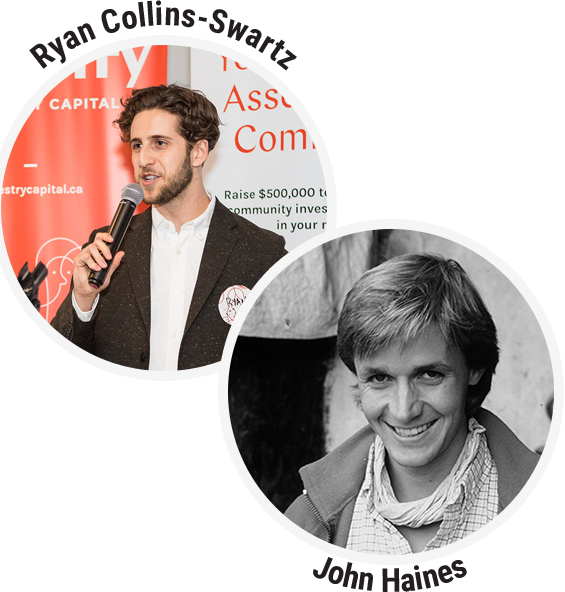
Ryan Collins-Swartz
Tapestry Capital
Toronto, ON
John Haines
Community Investment Trust
Portland, OR
Building Community Into the Capital Stack: Alternative Funding Resources
Two speakers will share how their programs grow wealth and ownership in under-resourced neighborhoods while also supporting social purpose real estate AND greater stakeholder involvement in community development. Two presentations of 15 minutes each. A 15-min collective Q&A will follow the presentations.
Session Descriptions:
Ryan Collins-Swartz, Tapestry Capital:
Non-profits & charities face barriers when it comes to raising capital for their shared space. Banks can be difficult to work with or propose unreasonable terms. Grants are unpredictable. And communities have donor fatigue. Community bonds allow shared spaces to raise funds on their own terms and from their own community. They flip the traditional financing and investing system on its head. This approach gives people the agency to control their own destiny and own their future. The result is that the shared space successfully raises their funds to start, expand, or own their asset. While in the process mobilizing a powerful group of local supporters literally invested in their mission.
In pandemic and non-pandemic times, participants will benefit from understanding this model and walk away with the following tools:
- Understanding how investors make decisions (The investor mindset)
- Mapping your potential investors (You have more community than you think)
- Determining if it makes sense to own versus rent (The renter’s dilemma)
- Inspiring your community to invest (Lessons from successful bond campaigns)
John Haines, Community Investment Trust:
One in four people in the United States lives in a condition of “asset poverty.” After being unemployed for three months without income, people are forced to turn to friends, family or public assistance to meet their basic needs. People are not able to invest in their futures or human potential. There is a shortage of affordable, accessible and local investments to people who have faced difficulty in their lives. The Community Investment Trust (CIT) builds the possibility to strengthen communities and create empowered lives. The CIT offers a long-term path to collective, communal ownership of real-estate for investors starting from $10-$100 per month. Ultimately, we are committed to working together to build more just, productive and resilient communities across the country.
Ryan Collins-Swartz
Co-Founder, Tapestry Capital
Toronto, ON
John W. Haines, who served as the executive director of Mercy Corps Northwest before taking the role of scaling the CIT full-time, spent his career working in finance and economic development globally and in the U.S., in the private and non-profit sectors. Prior to Mercy Corps, he was a commercial lender at First Interstate Bank in Portland, OR; started an economic development fund in Trenton, NJ; was senior finance advisor to the Czech National Environmental Fund, working for Chemonics; and helped found ShoreBank Pacific, a bioregional conservation-based bank based in Portland, OR. John has been supported for five years in developing the CIT by an advisory team including leading experts in academics, real estate, law and economic policy. The advisors remain dedicated individually and as a team to seeing the CIT succeed and launch nationally.
John Haines
Executive Director, Community Investment Trust
Portland, OR
John W. Haines is the Executive Director of the Community Investment Trust with Mercy Corps Global Innovations Team since Feb. 2018. Previously, he was executive director of Mercy Corps Northwest, the domestic arm of Mercy Corps, for 15 years. From 1997-2002, he was vice president of ShoreBank Pacific, a start-up sustainable development bank in Portland, Oregon. From 1996-97 he was senior finance advisor to the Czech National Environmental Fund in Prague, working for Chemonics. From 1994-95 he was executive director of Trenton Business Assistance Corporation, an economic development loan fund in Trenton, NJ. From 1986-1991 he worked in various corporate banking and commercial lending positions with First Interstate Bank of Oregon (now Wells Fargo Bank). He is a graduate of the University of Wyoming and native of Laramie, Wyoming.

Christy Cubbage
CFO of Support Kansas City
Kansas City, MO
Thaddeus Squire
Social Impact Commons
Asta Petkeviciute
Social Impact Commons
The Timely Rise and Dynamic Benefits of Shared Services/Fiscal Sponsorship
This panel discussion will touch on how now, more than ever, nonprofits and their clients can benefit from shared services including fiscal sponsorship and shared financial expertise.
Session Description:
This session will run as a panel discussion, facilitated by Debra Box – NCN Steering Committee Co-Chair, Principal and Consultant of In The Box Consulting, and former CEO of Support Kansas City and featuring Christy Cubbage, CPA of Support Kansas City, and Thaddeus Squire and Asta Petkeviciute of Social Impact Commons.
As the COVID-19 crisis and its economic aftershocks continue, the most vulnerable and marginalized populations are more at risk than ever before, and that includes the nonprofits that serve them. Before the pandemic, these organizations were fragile, starved for resources, and overwhelmed by demand from their communities. The pandemic has forced nonprofits to make difficult decisions around their budget and organizational sustainability but has also provided opportunities to rethink the infrastructure around how they do their work.
Shared services and fiscal sponsorship are effective tools for nonprofit operations; yet so many entities still do not take advantage of their offerings. Whether it is navigating additional compliance and reporting, adapting to new online payment platforms, building your network to build capacity, or piecing together the fragmentation of resources through a robust shared infrastructure platform, these tools could be a lifeline to nonprofits and their communities. This session will feature different organizational pathways towards shared services and fiscal sponsorship, what these organizations have done to support nonprofits during the pandemic with tools they’ve already had, and how they are shifting or pushing nonprofits to think differently in order to commit to these offerings to have long-term sustainability through the pandemic and beyond.
Christy Cubbage
CPA, CFO of Support Kansas City
Kansas City, MO
Christy is a licensed CPA with expertise includes tax consulting, client accounting and accounting systems management. Christy joined Support KC in 2012.
Christy’s experience includes in public accounting serving small and mid-size entrepreneurial clients, including nonprofit organizations in Kansas and Missouri. Her community activities include Thank You Walt Disney, Inc. Board member and Treasurer, Missouri Society of CPAs Board Member and member of the Finance Committee, a Greater Kansas City Women’s Foundation Board member, and Accounting Advisory Board member for the University of Central Missouri.
She holds an Executive MBA from the University of Missouri – Kansas City and remains active in alumni and community activities.
Thaddeus Squire
Chief Commons Steward, Social Impact Commons
Thaddeus Squire, has more than 20 years of experience in the nonprofit management field, focusing on arts and cultural heritage. His significant work in nonprofit resource sharing began in 2010 as founder of CultureWorks Greater Philadelphia, the first comprehensive fiscal sponsor focusing on arts and heritage, which manages more than 120 independent organizations. Thaddeus’s creative practice is focused on systems design for nonprofit resource sharing, in particular practices based in commoning and commons management principles. His work is grounded in the fields of American Pragmatism, Common Pool Resource Economics, Cooperative Management, New Localism and the Applied Behavioral Sciences, which are among the fields he writes about under the blog site jointhecommons.org. Additionally, he has deep expertise in the history of philanthropy and the nonprofit sector, nonprofit management, fine and performing arts, heritage preservation, and museum sciences. Thaddeus holds degrees from Princeton University and the University of Leipzig.
Asta Petkeviciute
Chief Financial Steward, Social Impact Commons
Asta Petkeviciute, has over 20 years of experience with a focus on strategic financial management, diverse use of technology, and organizational capacity development for non-profit organizations globally. Her background includes managing a $200 million portfolio of health systems strengthening activities across 20 countries globally; leading one of the largest fiscal sponsorship programs in the U.S., which supported over 90 different organizations nationally; and providing strategic management consulting to small and medium organizations nationally and internationally as part of Fiscal Management Associates (FMA). Asta has a Masters of Business Administration degree from Heller School, Brandeis University and a Bachelor of Science degree in International Business from Champlain College. Asta’s expertise is focused towards leading teams through strategic financial and organization management challenges with the key focus on operational efficiency and effectiveness while strengthening organizational sustainability, diversifying business models, use of data for decision making, and meeting complex donor compliance expectations.

Faisal Abid
TSNE MissionWorks
Boston, MA
Elaine Ng
TSNE MissionWorks
Boston, MA
Developing and Implementing a Comprehensive Emergency Response for Your Network
As the property manager for multiple nonprofit properties across Greater Boston, as well as a fiscal sponsor, TSNE will explore the benefits of shared property management and other services for the nonprofit sector, particularly as relates to emergency response. We will highlight what goes into an emergency response plan, such as a cross-organizational rapid response team to coordinate the work, having a coordinated communications plan in a crisis, and best practices for your internal operations. We will also talk about how being a shared services provider allowed us to identify and address trending issues that nonprofits faced in the crisis.
Faisal Abid
Director of Real Estate, TSNE MissionWorks
Boston, MA
Faisal oversees all real estate operations for TSNE, the owner and operator of the NonProfit Center in downtown Boston. In addition to overseeing all aspects of the NonProfit Center’s operations ranging from budgeting to client relations. Faisal also oversees our operations at the other nonprofit properties we manage or operate on behalf of Boston Properties, the Cambridge Redevelopment Authority, Conservation Law Foundation, the National Consumer Law Center, and the New England Board of Higher Education.
Elaine Ng
Chief Executive Officer, TSNE MissionWorks
Boston, MA
As a 25-year veteran of the nonprofit and education sectors, Elaine has a passion and commitment for organizations that shift the paradigm of equity and access. Most recently, she held the positions of Strategic Planning Director for Special Education for Boston Public Schools, and Executive Director of the Boston Chinatown Neighborhood Center.
Reserve your spot today!
Late Pricing
Sept 2 – Oct 6
Members – $199
Non-members – $249
Curious about what to expect?
What previous Sharing Innovation attendees have said about the event:
- “A fabulous networking and learning event for anyone working on or in shared nonprofit space, community, ownership and social purpose real estate”
- “A place where people gather to share lived experiences and where you can leave rejuvenated and energized to keep moving forward”
- “It’s so rejuvenating to be with people who are navigating the same challenges that my team and I are. I’m excited to get back to the work and make things happen.”
- “An opportunity to learn, share, and connect with nonprofit leaders at the forefront of collaboration”







